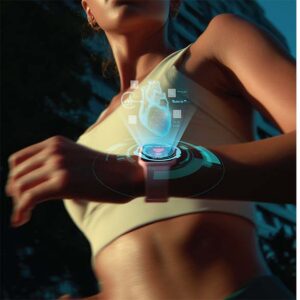
Be the change, because change is opportunity.
As we embrace change and disruption as the new normal, we need to abandon a fear-based response, and see the challenges of change as a gateway to new opportunities.
Our typical human response, when confronted by the new and unfathomable, is the ‘fight or flight’ instinct with which we are all hardwired. We either try to deny that change is happening, and cling to outdated beliefs and stratagems, or we kick back with resistance. But if, instead, we trusted in the organic, evolutionary flow of ideas, and embraced the uncertain future with boldness and bravery, we would open ourselves up to a world of possibility.
The future is all about increased customisation and personalisation, and a true devolution and democratization of power – a truly costumer or consumer-centric era, where meeting people’s individual needs and wants, in real time, is the way the future economy will work. And it’s already happening: globally, people are gaining greater agency in terms of political power, with online petitions, crowd-funded projects, and virtual mass action as the new political response.
In terms of tech, customisation is key. Already Adidas, with their Futurecraft 4D running shoes, will soon be rolling out 3D-printable midsoles that exactly match the wearer’s individual pronation tendencies and pressure points. ‘Printed’ in just under two hours, these customisable running shoes open up the possibility of a footwear store of the future that will allow customers to have their shoes built around their foot and its unique features, on site and while they wait.
Socially, micro-communities and minorities will increasingly find their voice – and purchasing power – as innovators and manufacturers try to open up new niche markets. So, for example, Nike has released a lightweight hijab (religious head garment) for female Muslim athletes. The Nike Pro Hijab is made of a high-tech material that is light and breathable, but sufficiently dense and heavy that it does not come off during competition or intense physical activity.
And this kind of individuated innovation is unfolding right before our eyes, never mind in the year 2050 – mugs that heat your favourite hot drink just right; pre-emptive medical clinics that offer gym facilities and genetic testing to optimize your individual health profile; lifts that move sideways, and not just up and down, to get you right where you need to go; bots that are designed to bond with you; eSight3 glasses that give legally blind people the gift of sight; an induction cook top with built-in sensor and thermometer linked to a cooking app to guide wannabee cooks to culinary excellence. Tailor-made tech on tap is already at our fingertips. So, imagine the world of opportunity that awaits.
In South Africa, the social challenges facing us daily are opportunities hiding in plain sight, and if we positively embrace (rather than fear) change, find solutions pro-actively and encourage a culture of fearless innovation, we stand to turn our economy around. That’s why Belgium Campus creates a consolidated curriculum that takes learning beyond the lecture hall and into the real world. Belgium Campus’s unique Participative Development Model for Education (PDM) builds an arc from academic learning to real-world application and employability, breeding innovators and future scientists who will make a meaningful contribution to society.
As a higher education institution entirely devoted to ICT, Belgium Campus positions you to unlock your potential as a software engineer, software developer, systems architect, business intelligence expert, data analyst, systems and infrastructure expert, data miner or web developer. We have also introduced a totally novel paradigm – the opportunity to specialise in artificial intelligence, data sciences and cyber-security, all developed in collaboration with leading industry experts.
Belgium Campus offers local and International internships, mobility and exchange programmes and learnerships, and has created ‘Learning Factories’ – creative, hands-on, physical work spaces, where students can develop prototypes and test them, allowing them to innovate real applications for the real world, right from year one of their studies. These factories are, in effect, incubation hubs for real-life applications, in collaboration with academic and industry experts, and cover fields where technological interventions are sorely needed: Aeronautics (we have a full-scale airport hangar), Smart Farming, Mobile Health, Education and Creative Economies.
Belgium Campus offers you the complete tool kit you need to become a changemaker of the future.




